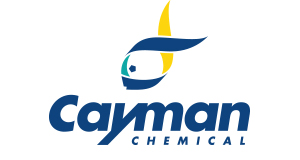ApoE2 (human, recombinant)
ApoE2 (human, recombinant)
Artikelnummer
CAY37225
Verpackungseinheit
100 µg
Hersteller
Cayman Chemical
Verfügbarkeit:
wird geladen...
Preis wird geladen...
Shelf life (days): 180.0
Formulation: 50 mM HEPES, pH 7.4, with 150 mM sodium chloride and 10% glycerol
Uniprot ID: P02649
Purity: ≥70% estimated by SDS-PAGE
Formula Weight: 0.0
Notes: ApoE is a member of the superfamily of amphiphilic exchangeable apolipoproteins and a lipid carrier protein with a major role in lipid homeostasis.{64862,64861} It is expressed in astrocytes, hepatocytes, monocytes, macrophages, and kidney cells and exists as three major polymorphic alleles, ApoE2, ApoE3, and ApoE4, which occur in the United States population with frequencies of approximately 7, 79, and 14%, respectively. ApoE is composed of an N-terminal domain, which contains sequences for binding to members of the LDL receptor family, and a C-terminal domain, containing the major lipid-binding region, linked by an unstructured hinge region, which facilitates domain mobility essential to protein function.{64861} Upon lipid binding, ApoE undergoes a conformational change that orients the α-helices of the C-terminal domain perpendicular to the acyl chains of the bound lipids to stabilize the bound lipids and facilitates recognition and binding to LDL receptors by the N-terminal domain. ApoE isoforms vary at amino acids 130 and 176 (112 and 158, respectively, in the mature protein) with ApoE2 containing cysteine at 130 and 176, ApoE3 containing cysteine at 130 and arginine at 176, and ApoE4 containing arginine at 130 and 176. The lack of an arginine residue at position 176 prevents ApoE2 from binding to the LDL receptor.{55795} ApoE2 is associated with larger lipoprotein complexes, promotes more cholesterol efflux than ApoE3-containing lipoproteins, and is able to bind more lipid peroxidation products than ApoE4.{64865,64866} Mice expressing human APOE2 develop type III hyperlipoproteinemia and atherosclerosis.{64863} Expression of APOE2 is associated with a decreased risk of Alzheimer's disease and a lower rate of age-related cognitive decline, however, it is also associated with risk of post-traumatic stress disorder (PTSD) and stroke.{64864} Cayman's ApoE2 (human, recombinant) protein can be used for cell-based assays.
Formulation: 50 mM HEPES, pH 7.4, with 150 mM sodium chloride and 10% glycerol
Uniprot ID: P02649
Purity: ≥70% estimated by SDS-PAGE
Formula Weight: 0.0
Notes: ApoE is a member of the superfamily of amphiphilic exchangeable apolipoproteins and a lipid carrier protein with a major role in lipid homeostasis.{64862,64861} It is expressed in astrocytes, hepatocytes, monocytes, macrophages, and kidney cells and exists as three major polymorphic alleles, ApoE2, ApoE3, and ApoE4, which occur in the United States population with frequencies of approximately 7, 79, and 14%, respectively. ApoE is composed of an N-terminal domain, which contains sequences for binding to members of the LDL receptor family, and a C-terminal domain, containing the major lipid-binding region, linked by an unstructured hinge region, which facilitates domain mobility essential to protein function.{64861} Upon lipid binding, ApoE undergoes a conformational change that orients the α-helices of the C-terminal domain perpendicular to the acyl chains of the bound lipids to stabilize the bound lipids and facilitates recognition and binding to LDL receptors by the N-terminal domain. ApoE isoforms vary at amino acids 130 and 176 (112 and 158, respectively, in the mature protein) with ApoE2 containing cysteine at 130 and 176, ApoE3 containing cysteine at 130 and arginine at 176, and ApoE4 containing arginine at 130 and 176. The lack of an arginine residue at position 176 prevents ApoE2 from binding to the LDL receptor.{55795} ApoE2 is associated with larger lipoprotein complexes, promotes more cholesterol efflux than ApoE3-containing lipoproteins, and is able to bind more lipid peroxidation products than ApoE4.{64865,64866} Mice expressing human APOE2 develop type III hyperlipoproteinemia and atherosclerosis.{64863} Expression of APOE2 is associated with a decreased risk of Alzheimer's disease and a lower rate of age-related cognitive decline, however, it is also associated with risk of post-traumatic stress disorder (PTSD) and stroke.{64864} Cayman's ApoE2 (human, recombinant) protein can be used for cell-based assays.

 English
English










